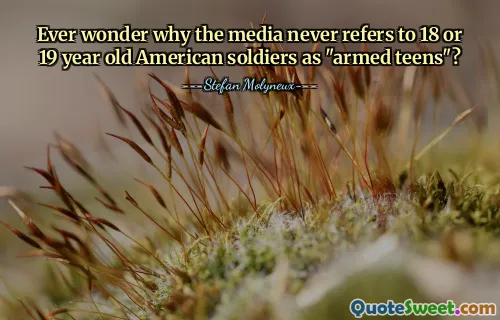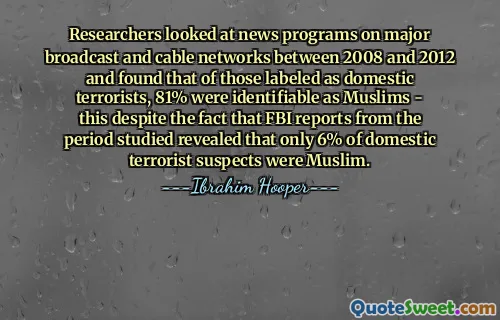
Ever wonder why the media never refers to 18 or 19 year old American soldiers as "armed teens"?
This quote prompts a critical examination of the way media portrayals influence public perception. The term "armed teens" conjures images of juvenile delinquency or uncontrolled youth, evoking an emotional response that might influence opinions on military enlistment, war policies, or the maturity levels of soldiers. Yet, when it comes to 18 or 19-year-old soldiers—who are legally adults—the media refrains from using such descriptors, possibly because of societal expectations of adulthood, responsibility, and maturity. This discrepancy reveals underlying biases in media framing, potentially to garner sympathy for young soldiers or to justify their involvement in complex conflicts, while simultaneously demonizing youth in unrelated contexts. It reveals how language shapes perceptions and can serve political or ideological purposes. Recognizing these inconsistencies encourages us to question the narratives presented to us and to understand the importance of framing in shaping public discourse. Additionally, it raises broader societal questions about the age of consent, maturity, responsibility, and the cultural script that assigns differing labels based on context. By scrutinizing such language use, consumers of news can become more aware of biases, encouraging a more nuanced and critical engagement with media content. Such reflection is vital in fostering an informed perspective on issues of war, youth, and societal roles, ensuring that labels do not blindly influence our judgment without considering the complexities involved.









